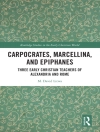For Africans, rank and file colonial officials were the most visible manifestation of British imperial power. But in spite of their importance in administering such vast imperial territories, the attitudes of officials who served between the end of the nineteenth century and the Second World War, as well as what shaped such attitudes, have yet to be examined in any systematic way.
In this original and revisionist work, Prior draws upon an enormous array of private and official papers to address some key questions about the colonial services. How did officials’ education and training affect the ways that they engaged with Africa? How did officials relate to one another? How did officials seek to understand Africa and Africans? How did they respond to infrastructural change? How did they deal with anti-colonial nationalism? This work will be of value to students and lecturers alike interested in British, imperial and African history.
Table des matières
General Editor’s introduction
Introduction
1. The construction of a governing corps
2. An imperial education
3. Individualism, intrigue and esprit de corps
4. Envisioning imperial authority: Power, ritual and knowledge
5. Implementing colonial change: Economics, infrastructure and education
6. Managing social and political change: Tradition, modernity and indirect rule
7. Conclusion
Bibliography
Index
A propos de l’auteur
Christopher Prior is Lecturer in Twentieth Century History at the University of Southampton












